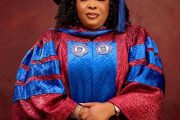 By Maryam MA
By Maryam MA
What does a young Nigerian/Mauritanian immigrant, fresh off the boat, know about Black History Month? Nothing! I knew nothing about Black History when I first arrived in the United States as a young college graduate of Political Science in her twenties. How could that be? A graduate of Political Science ignorant of the African American experience? It is of interest to note that besides slave trade and a small dose of civil rights history, many Africans come to the United States with only the racial stereotypes the media consistently fed them. Sure, we admired black culture. Sure, we wanted to dress like our favorite black celebrities. To us, cool was synonymous with black culture. We admired black fashion, music, etc. Unfortunately, all our consumption of hip hop culture and media narratives came with their downsides. For the most parts, we misunderstood the things we watched on television and thus associated the black culture with failure. We totally missed the point of movies like “Friday” or “Boyz n the Hood.” We failed to see what the real message was. And can you blame us? We had no sense of history and context. Our poor understanding of systemic racism led us to assume this was just “black life in America.” As we grew older we would often ask each other why black people were not doing well in “God’s own Country” after all America is “the land of the free, home of the brave, with liberty and justice for all”…yada yada. You get the point.
Like many Africans, I came to America with an erroneous opinion about black people. What is that opinion? YOU ARE TO AVOID THEM. Why? As Africans, we are supposed to come to America to further our education, start a business, or advance in whatever field we desire. In other words, we come here to take advantage of all the greatness America has to offer so we cannot afford any distractions. Distractions like having fun or heated conversations about race with African Americans or attending protests like “black lives matter.” In other words, avoid black people who know what they are talking about or whose parents and grandparents actually lived through the shameful history of America’s past, with vestiges of such past still hovering around. I am proud to say I welcomed and embraced all these “distractions”, without avoiding them. I learned and latched myself to people who knew the real struggle.
Recently, a former colleague and friend, Tracy Washington of Method School (here in Los Angeles) invited me to be part of a panel at her School’s first Black History Month Celebration. She wanted me to share my story about something or someone that has shaped my personal or professional life as an African in America. I thought long and hard about the significance of her prompting and reflected on the sixteen years I have lived in America. “Who was that twenty-something-year-old, newly married and naïve woman? Who am I now?” Well, that was too long of a story to share in the five minutes I had to talk so… I simply said my experience with my students in inner-city Los Angeles has been the most profound experience in shaping the woman I am today. I said this because I experienced a mental shift after meeting my students. ALL of my students! (Not just the easy students). The experience was so profound that it is shaping how I am raising my children. I am raising my children to see everyone, to have an open heart, to live free, to be part of the change they want to see, to complain less, and do more… This was part of what I really wanted to tell the panel and all those who attended:

The world showing the location of the United States
When I first arrived the United States, I got a job as a teacher’s assistant in the heart of the Crenshaw District of Los Angeles. I was assisting an English teacher in middle school with whatever task she assigned to me. Her name is Latesha Thomas – a person with whom I have remained friends, sixteen years later. I had never been in a US classroom prior to my first day on the job. As can be imagined, the cultural shock I experienced at the time was enormous. Everything was different. Different in a refreshing way. Even though I knew I wanted to be a teacher, that first-day experience sealed the deal. I looked forward to going to work every day mostly because I loved listening to the kids talk. The sound of their voices, their diction, their clothes, everything about them made me feel like I was in an American movie. I loved it. I feel like the kids sensed my enthusiasm toward them and thus gravitated around me and seemed to take an interest in my story.
They asked me many questions about my accent, my home country, and so on. Many of the children had their demons and sometimes proved difficult, but the overall feeling was positive. They were smart and had so much to offer. They told me many stories about their families; stories of hard work, sacrifice, resilience, love, and family bonds. We went on to form bonds that were truly special. I respected them and they respected me in return. I think my “newness” plus my eagerness to understand American kids in their natural habitat came across as a genuine interest (and it was). I got the feeling that the kids were not used to many people showing eagerness to know them as individuals – not because no one cared, but because the teachers see kids like them every day. For me, it was a beautiful shock to see children so confident, so poetic in their everyday speech and interactions. These mostly black and Latino kids changed my perspective and ill-conceived opinions of black culture and they taught me things I could never have taught them. Because of the kids I met in that middle school in Crenshaw, I pushed myself to become a teacher in inner-city Los Angeles. I also pushed myself to learn about the black experience in America. Today, I am a better mother, teacher, social justice warrior, and friend. The story of the transformation that took place in my life cannot be complete without those kids.
Every February, America celebrates Black History Month. The second month of the year was set aside as the time to “seize the opportunity to honor the too-often neglected accomplishments of Black American in every area of endeavor throughout history” according to Gerald Ford who officially recognized Black History Month in 1976. However, the month was already set aside for such celebrations by historian Carter G. Woodson and the Association for the Study of Negro Life and History. Indeed, Black History Month is not just about the blacks. It’s about our shared humanity!
The author is a teacher at New Designs Charter School, Los Angeles, California



























